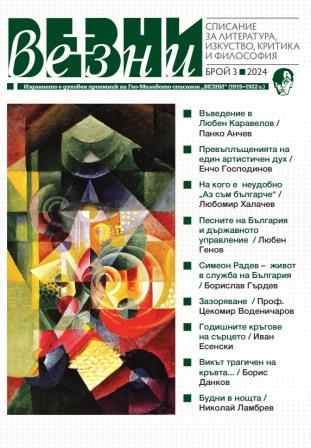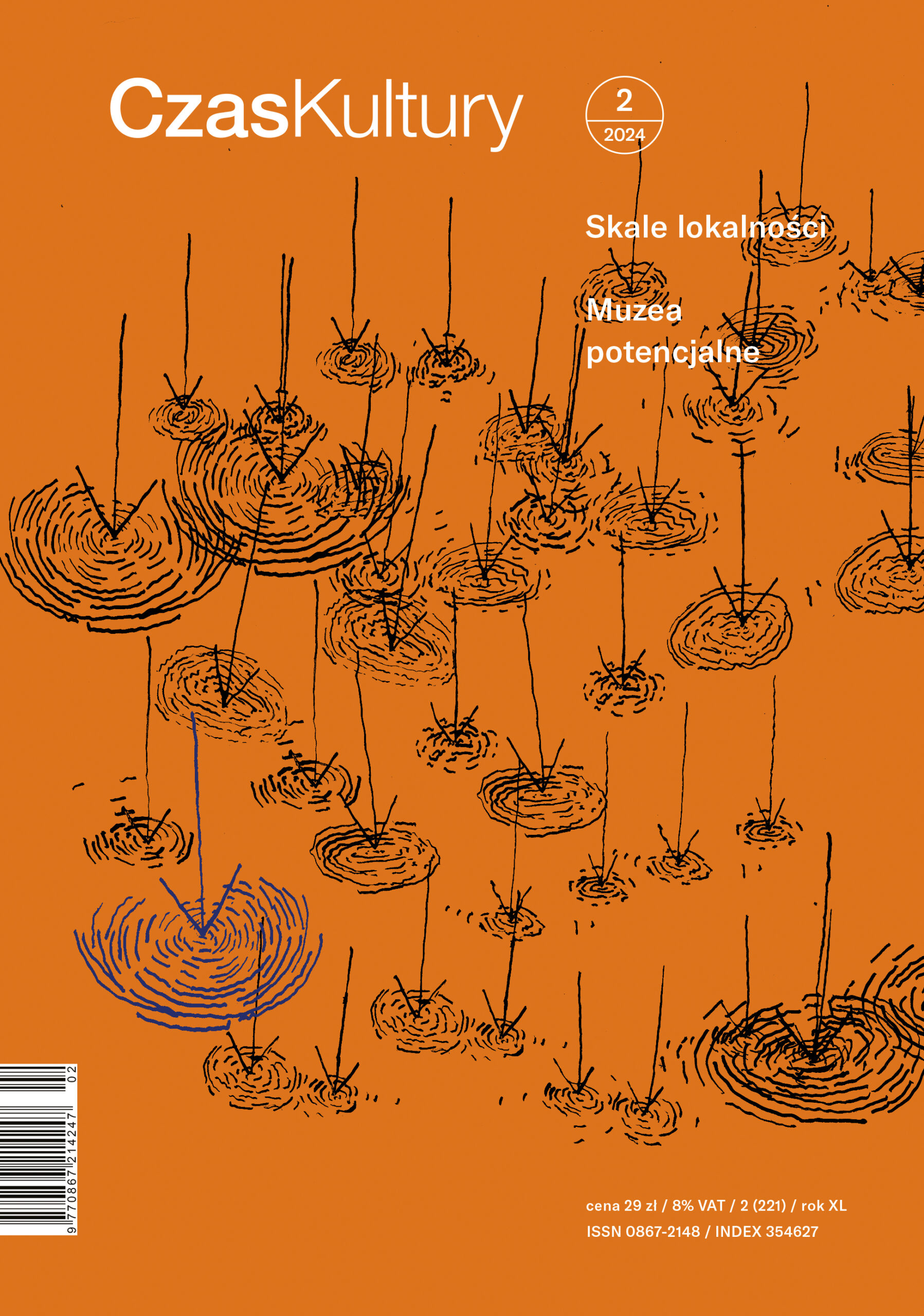
We kindly inform you that, as long as the subject affiliation of our 300.000+ articles is in progress, you might get unsufficient or no results on your third level or second level search. In this case, please broaden your search criteria.



Zsuzsa Demeter's interview with Poet and Writer Ákos Győrffy
More...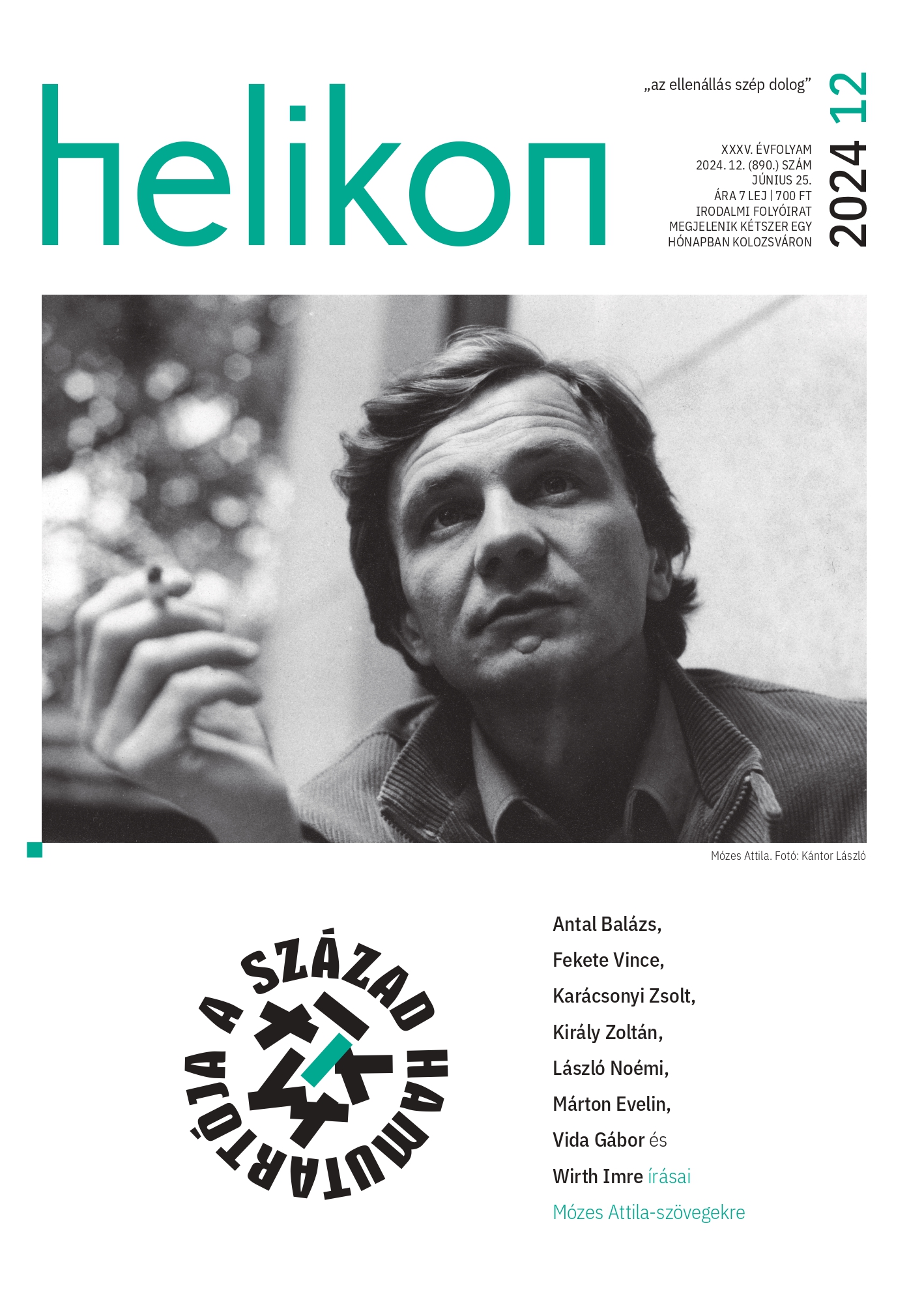
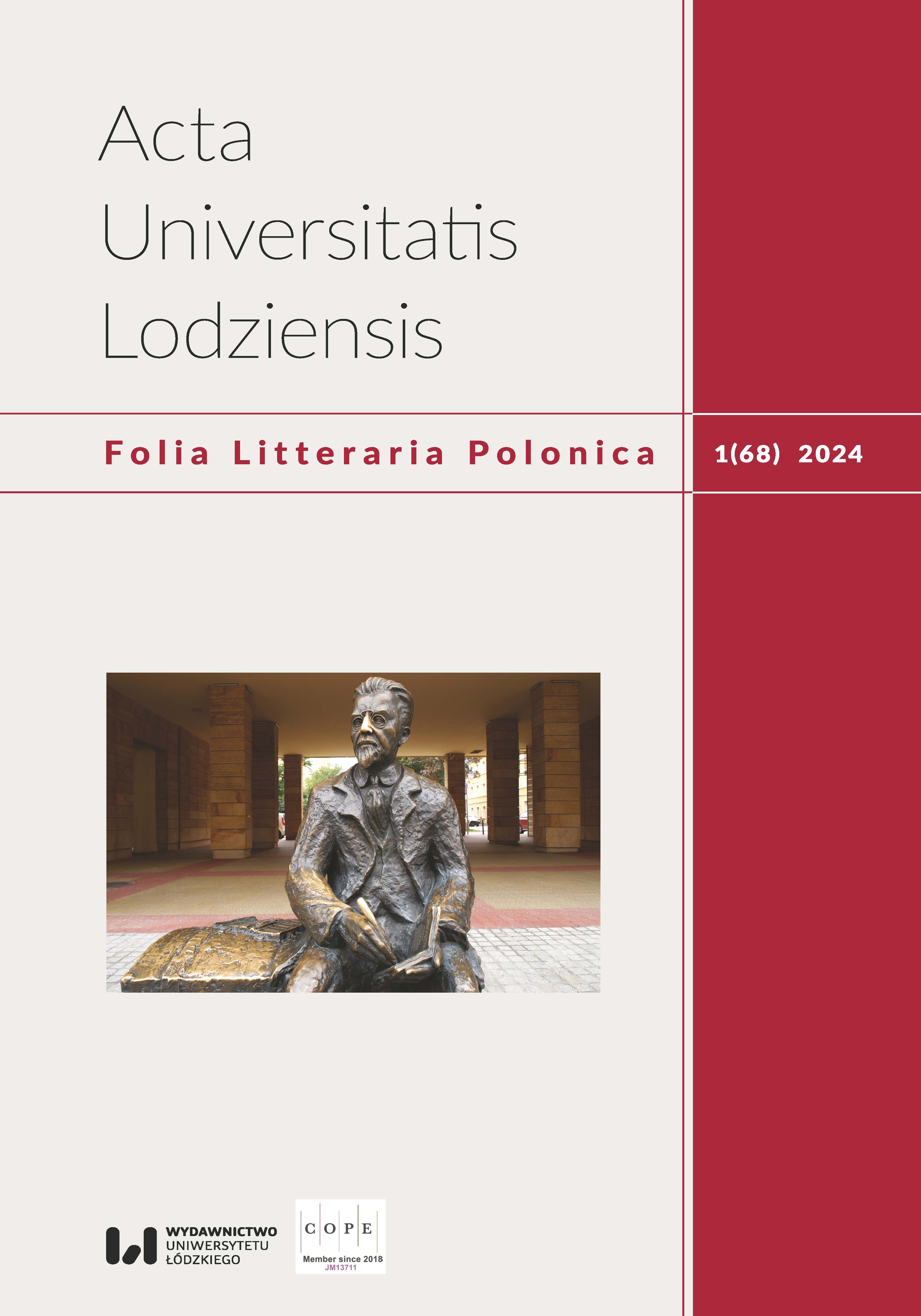
The Lodz Uprising was the most important episode of the armed struggle during the revolution of 1905, taking place in the Kingdom of Poland. This was a consequence of the socio-economic tensions in Russia, which had been growing since the beginning of the 20th century. It had the character of a spontaneous uprising of workers, at the same time being the culmination of earlier clashes that took place on the streets of Lodz. These events were reported in the press on a local scale, as well as in the cross-country and international press. A special place was given to two ideologically oppositional periodicals, reporting (as locals) on the outbreak and fate of the uprising and its participants in statu nascendii. These were: the right-leaning “Rozwój” and the “Goniec Łódzki” perceived as a centre of leftwing thought. Both magazines – with their different strategies of describing the uprising – were also, which is not without significance, daily newspapers, able to react to events (as opposed to weeklies) in an immediate manner. The aim of the essay is to analyse how – in the reality of censorship – the Polish-language press in Lodz at the time informed about the events taking place in statu nascendii. The starting point was the assumption of the dominant role of the daily press in showing the fate of the Lodz revolution. For this purpose, the philological method was used, supported by rhetorical criticism. Reading texts of various genres devoted to the June uprising makes us aware of the importance of Aesopian language in the description of the excursions and the emphasis on detail, replacing the overall description, in accordance with the principle of pars pro toto. The results of the analysis of the discussed messages allow us to deepen our knowledge of the textual image of the described events.
More...
This article presents the most interesting Ukrainian artists and cultural activists who lived in Lodz in the interwar period and made a mark in the history of Polish culture with their work. The following scientific methods were used to study the problem: descriptive, inductive, historical, press analysis, document examination, analysis and criticism of literature. The historical factors which caused the appearance of a large group of Ukrainian nationality among the city’s inhabitants are shown. The life path of Poland’s most famous Ukrainian painter Zenobiusz Poduszko is described. His artistic output and participation in the artistic life of Lodz are analysed. The specificity and activity of the creative style of the talented landscape painter was pointed out. Other Ukrainian cultural activists – theatre artists, teachers – are also presented. Most of the analysed Ukrainian artists and cultural activists were political emigrants. They participated in the struggle for Ukrainian independence. In order to save their lives, they had to flee Bolshevik repression and permanently emigrate from Ukraine. The work of the well-known Ukrainian artist and musicologist Myroslav Antonovych, who performed at the opera theatre in Lodz from 1930 to 1940, performing arias in operas by world masters – G. Verdi, G. Donicetti, R. Wagner and others – is presented.
More...
The area of my research includes the issue of values in the poems of Jacek Bierezin (1947–1993), a poet born in Łódź and associated with this city for most of his life. I research this topic using phenomenology and axiology. I believe that values are most strongly constituted and emerge in borderline situations, they are a derivative of freedom and choice, therefore, following Józef Tischner, I examine them as a borderline phenomenon. They are related to the phenomena of place and time, embedded in history, as shown by Tischner’s philosophy of meeting and dialogue, whose work I am using. I operate in the philosophy of drama and two spaces: the axiological Self and the Other. The communicative function of the Other also stems from the philosophy of encounter. In Berezin’s poetry, it is revealed in opposition to silent consent to evil. The issue of values is connected with the problem of axiology, in fact programmatically exposed in the poems of the poet from Łódź, who declares himself a student of Zbigniew Herbert.
More...
The article provides an overview of the profile of Witold Jabłoński, a contemporary Polish writer and translator from Lodz, known to enthusiasts of both historical fantasy and the recently popular genre of Slavic fantasy. The interpretative section is preceded by the writer’s biography, showcasing his lifelong connection to Lodz, where he resides and creates. In the second part of the article, we delve into pagan motifs in the novels from the Slavic Saga series, namely Dary Bogów, Popiel and Wanda, attempting to trace rich intertextual tropes in the re-telling narratives that characterize this author. Jabłoński is mentioned today alongside Andrzej Sapkowski and Andrzej Pilipiuk as one of the most widely read fantasy authors. The fact that Dary Bogów has been adapted into an audiobook on Audioteka.pl, featuring popular actors lending their voices to the characters, is indicative of his popularity. The article analyzes Jabłoński’s novels primarily using intertextual and cultural studies tools, but also draws upon religious studies, anthropology, and comparative religious studies.
More...
The article concerns the linguistic ways of presenting the achievements of women who, in the years 1968–1977, were in the finals of the plebiscite organized by the editorial office of the socio-cultural weekly “Odgłosy”. The originators of the Lodz Citizen of the Year plebiscite wanted to appreciate valuable activities and people who contributed to the development of the city. During the ten years of the competition, twenty-six women were among the hundred people aspiring to the title. The research material consists of fifteen profiles of women from Lodz who won the title – Citizen of Lodz of the Year. The collected material was assigned to six thematic categories, the names of which are quotes from the discussed press texts. The issues influencing the analysis are selected elements of the theory of the linguistic image of the world, as well as conceptualization belonging to the basic concepts in the field of cognitive linguistics. The collected material allowed us to observe how the achievements of women from the scientific community were described (Anna Rynkowska, Stefania Skwarczyńska, Olga Olgina). They were presented as the showcases of Lodz, “educators of generations”, “permanently associated with universities”. Halina Krysińska, a doctor, was described as a symbol of superhuman strength and determination, a person who could achieve impossible things. The woman hero was Irena Chojnacka. Among the distinguished women were also strong, organized women from Lodz with leadership skills (Krystyna Kondratiuk – initiator of the creation of the Textile Museum, Maria Ryl – co-founder of the “Arlekin” Theater, Izabela Nagórko – responsible for the development of Lodz libraries, Teresa Skoczylas – head of the company’s cultural center). Singers from Lodz, Teresa Wojtaszek-Kubiak and Teresa May-Czyżowska, were presented on the pages of “Odgłosy” as “rare opera birds”, promoting Lodz and delighting the world with their talent. The work of choreographer Jadwiga Hryniewiecka, founder of the Representative Dance Ensemble of Textile Workers’ Trade Unions Harnam, and the achievements of the legend from Lodz – actress Jadwiga Andrzejewska were also appreciated.
More...
The aim of the article is to outline the picture of Lodz and the Lodz region emerging from the radio documentaries of Kamila Litman from Radio Lodz. The material base includes 17 broadcasts from the years 2012–2022. The study uses the method of comparative analysis, taking into account the threads related to Lodz and the region taken up in documentaries, as well as formal solutions for portraying the Lodz region. In the analysed programmes, these issues are presented from the perspective of people, events and places related to the city or region, both in contemporary and historical terms. What emerges particularly clearly from them are, for example, the Jewish issues, but also the image of the city (and the region), where landmark events for the entire country have often taken place. The dramaturgy of the radio documentaries about the Lodz region is built on the basis of oppositions such as memory and oblivion, past and present, or scenes – audio images with a strong emotional charge, and the sound face of the city is co-created by the voices of its inhabitants or people associated with it, as well as numerous archival materials and music.
More...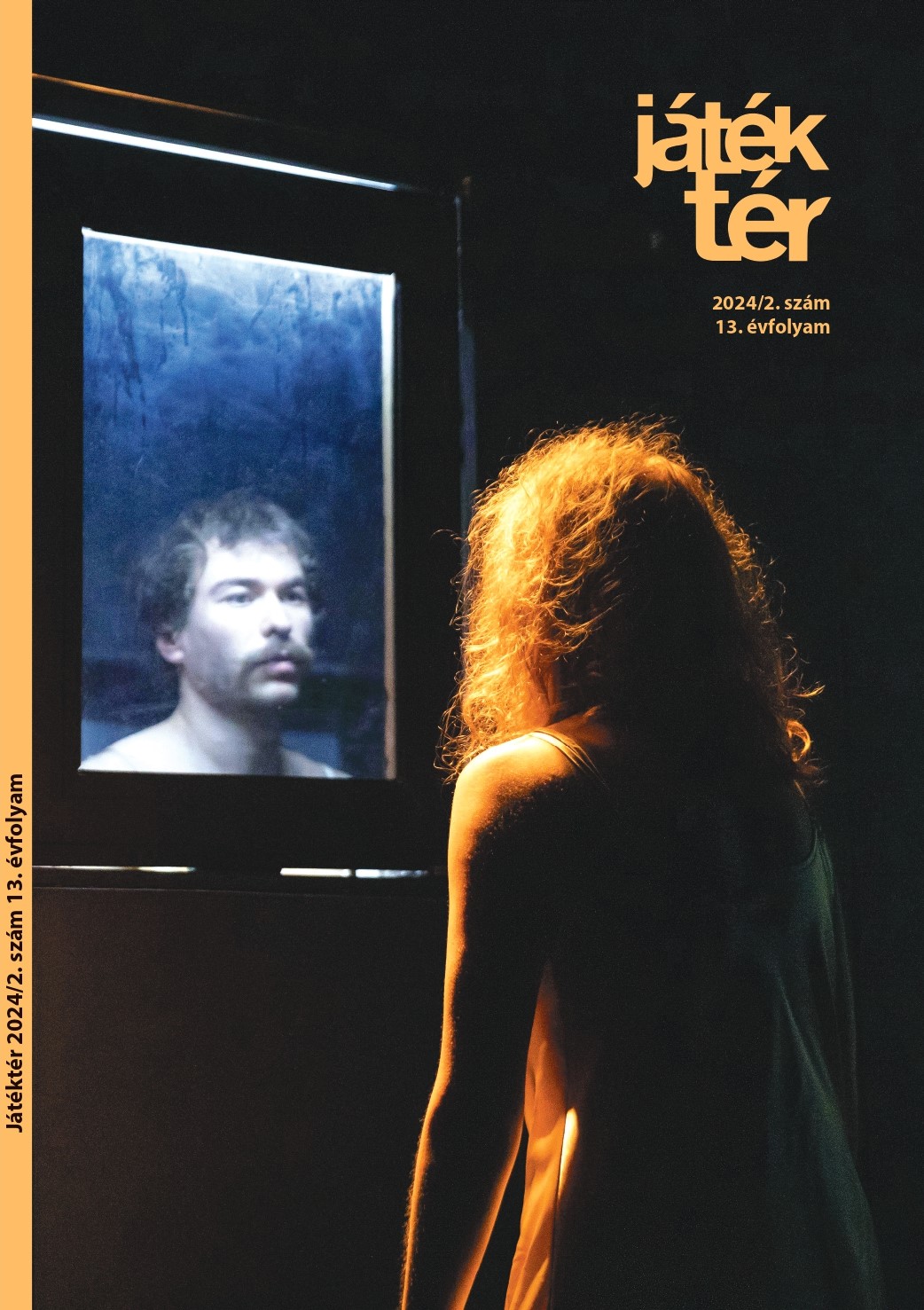
Lucy Kirkwood’s drama published in 2009 is about women who become victims of human trafficking. The story highlights the fact that these women are often driven into this situation by the hope of a better life, which may be due to the economic situation in their home country, but not exclusively. The play is written in monologue form, following the story from Dijana’s point of view. She is a Croatian woman who becomes a victim of human trafficking through falling in love with her procurer.
More...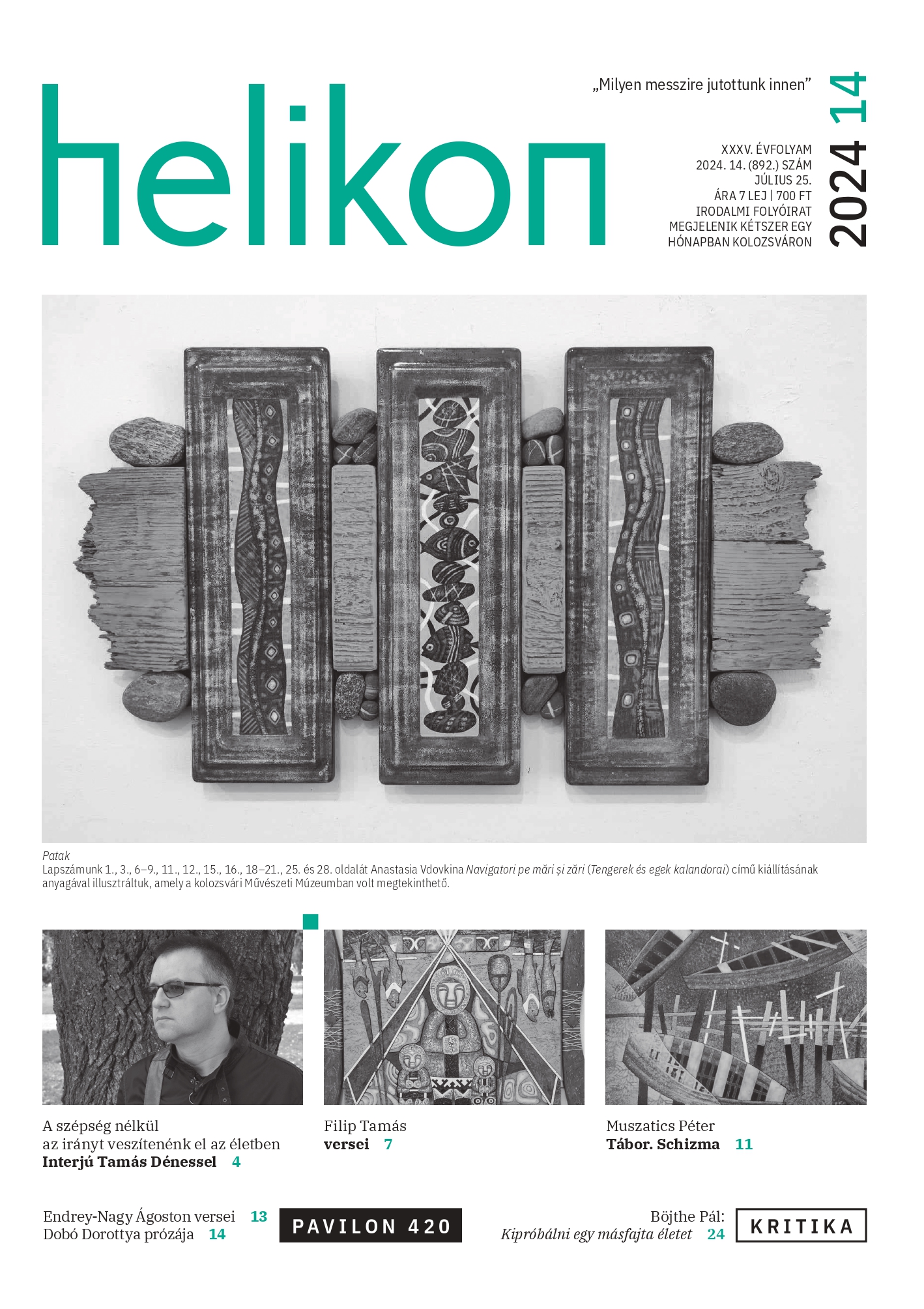
László Borsodi' L.'s interview with writer and critic Dénes Tamás
More...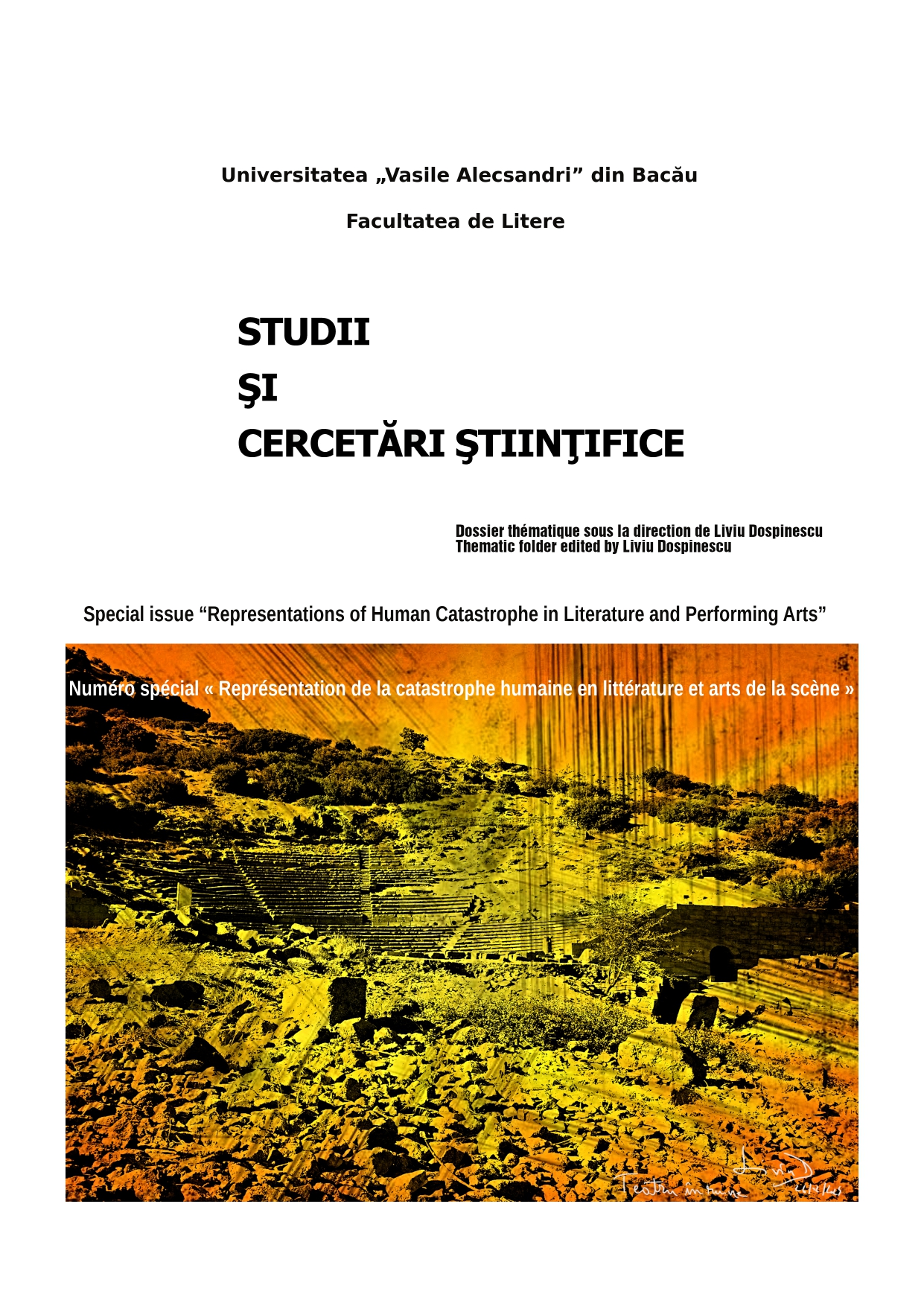
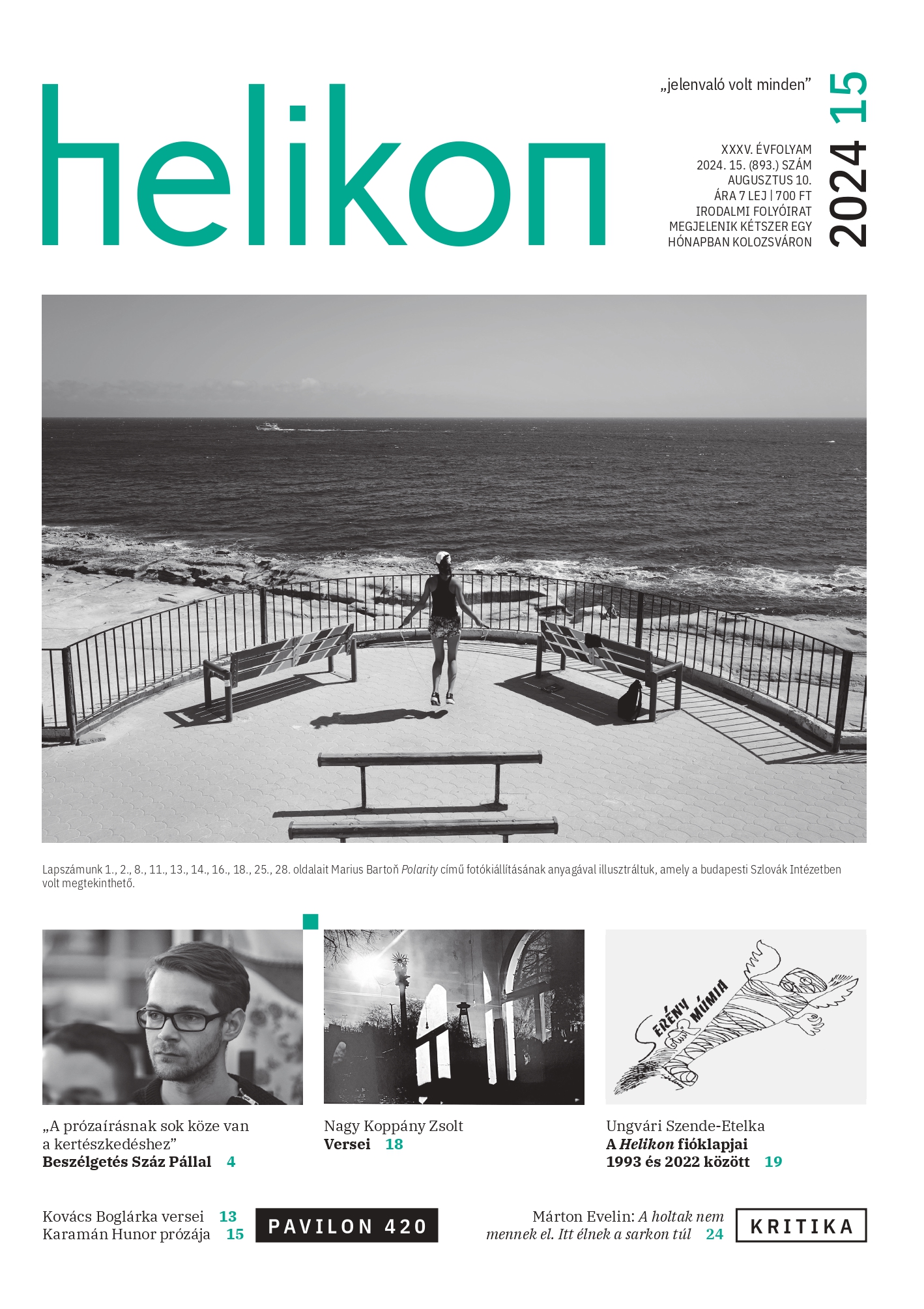
Hanna Nánia's interview with Pál Száz
More...